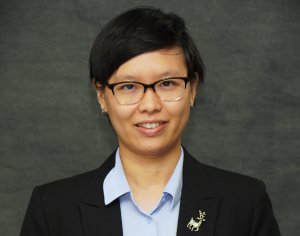Presented By: The Center for the Study of Complex Systems
CSCS Seminar | Beyond Nodes and Edges: Integrating Spatial Contexts into Urban Network Science
Xiaofan Liang, Urban and Regional Planning, Taubman College, University of Michigan

The talk will be recorded for later viewing. Coffee and snacks will be served.
Abstract: Cities are complex sociotechnical systems comprising intricate networks of infrastructure, human mobility, and relationships. However, conventional applications of network science in urban topics often simplify these systems into nodes and edges, disregarding the spatial and infrastructural contexts in which these networks operate. This limits our understanding of how network dynamics intersect with physical space and infrastructure, hindering meaningful changes that can be enacted through urban planning and policy adjustments.
This talk will introduce methods and implications of contextualizing urban networks within spatial and infrastructural dimensions. Case studies will be presented to show how the concept of network duality manifests, such as offering connectivity and access for certain populations, places, or types of flows, while marginalizing or restricting others. This phenomenon emerges as different urban network systems interact with each other and with the built environment.
Abstract: Cities are complex sociotechnical systems comprising intricate networks of infrastructure, human mobility, and relationships. However, conventional applications of network science in urban topics often simplify these systems into nodes and edges, disregarding the spatial and infrastructural contexts in which these networks operate. This limits our understanding of how network dynamics intersect with physical space and infrastructure, hindering meaningful changes that can be enacted through urban planning and policy adjustments.
This talk will introduce methods and implications of contextualizing urban networks within spatial and infrastructural dimensions. Case studies will be presented to show how the concept of network duality manifests, such as offering connectivity and access for certain populations, places, or types of flows, while marginalizing or restricting others. This phenomenon emerges as different urban network systems interact with each other and with the built environment.